Anyone who currently drives a petrol engine may be wondering whether an electric car would be a better choice. It's more environmentally friendly and economical - or is it? This article gets to the bottom of at least the last question and compares the costs of gasoline vehicles and electric cars . Of course, it should always be noted that both fuel and electricity prices can be subject to strong fluctuations.
Is an electric car cheaper than a gasoline car?
Let’s first look at a general cost comparison. There are three factors to consider:
- Purchase price of the vehicle
- Fuel prices vs. electricity prices
- possible funding
The purchase price is significantly influenced by which car class (mid-range, luxury class, SUV, etc.) someone buys and from which manufacturer. There are extremely large differences in price and electric cars are also offered in different price ranges.
Both fuel and electricity prices fluctuate . In general, electricity is usually still a little cheaper than diesel or gasoline , as can be seen in the section below.
The third point, funding , is important depending on the time. They want to put more focus on electric cars, which primarily comes from the environmental aspect . Which funding is currently possible is discussed in more detail below.
What advantages and disadvantages does an electric car have compared to a gasoline engine?
Anyone who can't decide between two things is known to make a pros and cons list
Advantages:
- more environmentally friendly
- Fuel costs are lower depending on the time
- no driving bans (for example in city centers)
- certain privileges (for example free parking)
- certain tax advantages
- lower costs (for example through insurance)
- modern
- good ecological conscience
- no big noise
- GHG bonus possible
Disadvantages:
- The purchase price is usually relatively higher
- Charging infrastructure is not yet ideal everywhere
- Range limited
- Batteries are usually temperature dependent
- Possible danger in traffic due to lack of noise
- Delivery times may be longer
- The only real “disadvantage”: charging the battery takes time
However, many of these disadvantages can be put into perspective. The purchase price is usually higher compared to a gasoline engine, but there are certain subsidies and discounts that partially compensate for this. The charging infrastructure is not ideal everywhere, that is true, but more and more charging stations are springing up and the manufacturer Tesla (which already has an extremely strong network) has also made charging available for other vehicles.
The limited range isn't really a negative either, because what about a petrol or diesel engine? At some point they also have to refuel and therefore also have a limited range to a certain extent.
The batteries are temperature dependent , that is also correct and the range is usually higher in summer than in winter. However, this fact also applies to a petrol engine!
Work is already underway to address the alleged danger in traffic and many electric cars already have separate engine noises or adjustable noises that are said to be equivalent to an engine.
The delivery times are no longer or shorter, as is the case with other popular petrol or diesel engines. What matters here is the specific car model and not whether it is an electric car or not.
Only the last point - and only this point - is actually a disadvantage in direct comparison to a gasoline engine or combustion engines in general. Yes, electric car drivers have to have a little more patience and time.
What funding is currently available?
When it comes to funding, it is important to pay attention to the exact dates, because the rewards and bonus offers always run for a certain period of time, are sometimes extended and sometimes not, and sometimes the values also change. The contact point is the Federal Office of Economics and Export Control (BAFA for short).
Funding levels:
- Net list price up to 40,000 euros: 4,500 euros
- Net list price from 40,000 to 65,000 euros: 3,000 euros
- Net list price over 65,000 euros: no funding
Half of this funding is sponsored by the state and the other half by the respective manufacturer. In 2022 the bonuses were slightly higher (6,000 and 5,000 euros), but they were reduced at the start of 2023.
Also important is the fact that from 2024 only electric cars with a net list price of the basic model of up to 45,000 euros will be subsidized .
Important: The new directive to promote the sale of electrically powered vehicles has come into force since January 1, 2023, but it now states that only the purchase or leasing of purely electric cars is supported. Plug-in hybrids are no longer supported.
Funding is also possible for used electric cars , provided the mileage is less than 15,000 kilometers and the vehicle has not been registered for more than a year.
The same rights apply to leasing vehicles as to new vehicles, but the contract period must be at least 24 months. The funding can also apply for shorter terms, but will then be reduced.
Tax savings on electric cars
There are also some advantages from a purely tax perspective, which is why you could opt for an electric car:
- until December 31st. In 2030, purely electric cars will not pay any vehicle tax (if they were or will be registered from May 18, 2011 to December 31, 2025)
- If the electric car is used as a company car, the tax is usually lower than for combustion engines
- Plug-in hybrids are not exempt from vehicle tax, but the taxes are usually cheaper than for combustion engines
How much does 100 km cost with an electric car?
How much 100 kilometers costs with an electric car depends on the exact model, your driving style, the weather conditions, the price of electricity and many other factors (as with petrol or diesel engines).
Assuming someone drives 100 kilometers in an electric car and consumes 16 kilowatts per hour over these 100 kilometers and the electricity price at this point is 50 cents, then the 100 kilometers cost the equivalent of 8 euros.
For comparison, a petrol engine . For example, if you drive a small vehicle and only use seven liters per 100 kilometers and if the fuel costs are 1.50 euros, then the price for 100 kilometers would be 10.5 euros. The petrol engine would therefore be more expensive even in a small car. If, on the other hand, a larger gasoline engine consumes 15 liters, the price would be 22.5 euros per 100 kilometers.

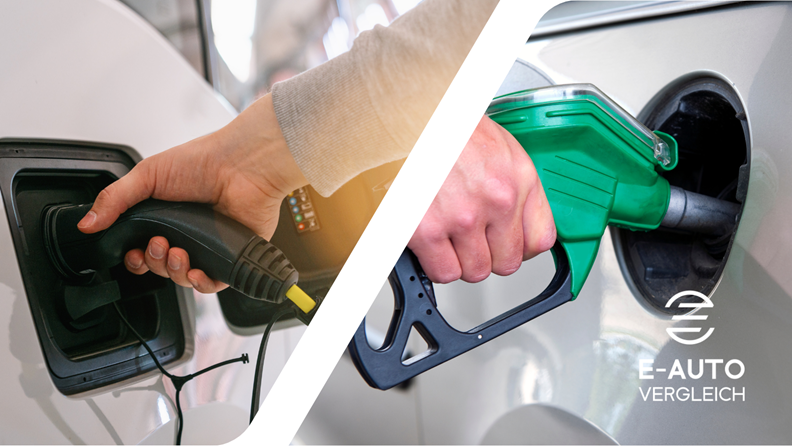
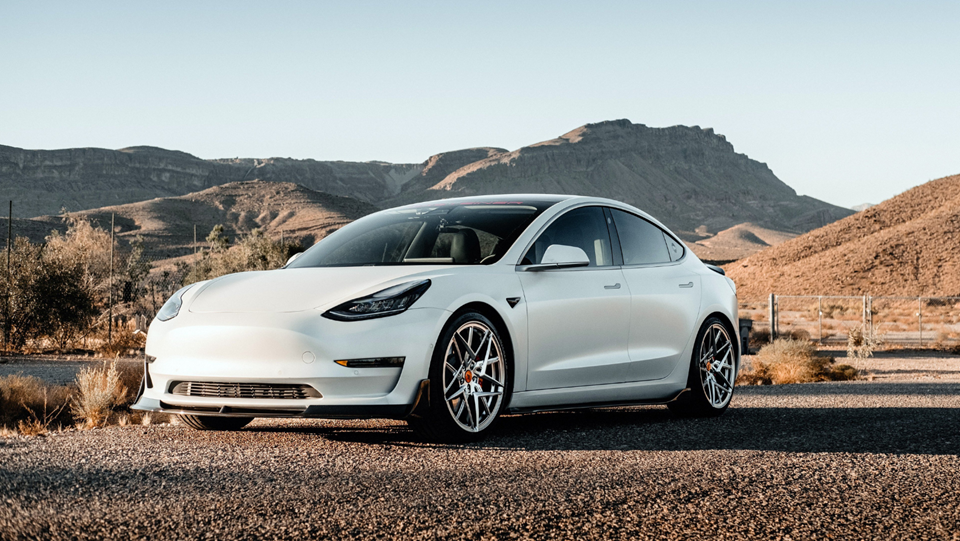
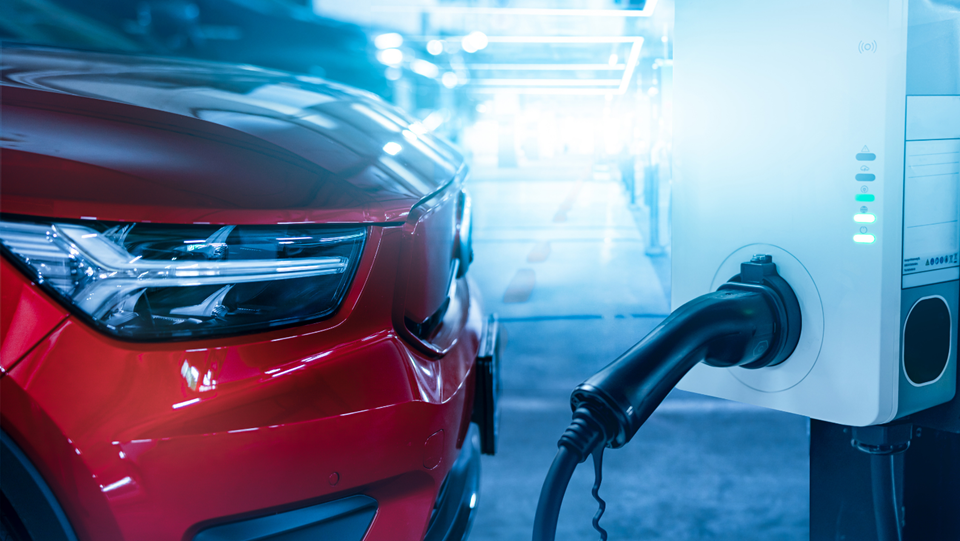
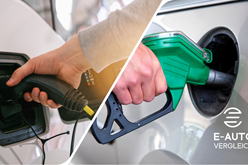

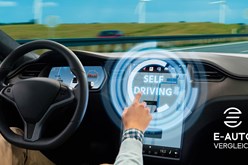
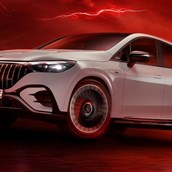

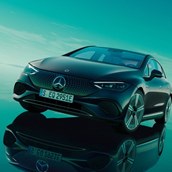
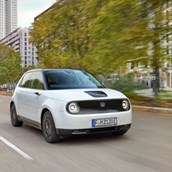
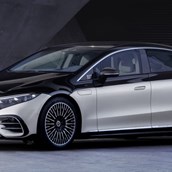

.png)